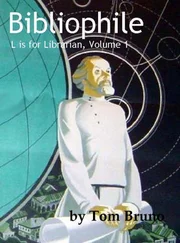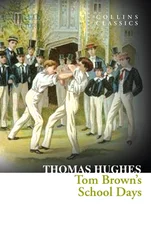Thomas Hughes - Tom Brown at Oxford
Здесь есть возможность читать онлайн «Thomas Hughes - Tom Brown at Oxford» — ознакомительный отрывок электронной книги совершенно бесплатно, а после прочтения отрывка купить полную версию. В некоторых случаях можно слушать аудио, скачать через торрент в формате fb2 и присутствует краткое содержание. Жанр: foreign_prose, foreign_language, на английском языке. Описание произведения, (предисловие) а так же отзывы посетителей доступны на портале библиотеки ЛибКат.
- Название:Tom Brown at Oxford
- Автор:
- Жанр:
- Год:неизвестен
- ISBN:нет данных
- Рейтинг книги:5 / 5. Голосов: 1
-
Избранное:Добавить в избранное
- Отзывы:
-
Ваша оценка:
- 100
- 1
- 2
- 3
- 4
- 5
Tom Brown at Oxford: краткое содержание, описание и аннотация
Предлагаем к чтению аннотацию, описание, краткое содержание или предисловие (зависит от того, что написал сам автор книги «Tom Brown at Oxford»). Если вы не нашли необходимую информацию о книге — напишите в комментариях, мы постараемся отыскать её.
Tom Brown at Oxford — читать онлайн ознакомительный отрывок
Ниже представлен текст книги, разбитый по страницам. Система сохранения места последней прочитанной страницы, позволяет с удобством читать онлайн бесплатно книгу «Tom Brown at Oxford», без необходимости каждый раз заново искать на чём Вы остановились. Поставьте закладку, и сможете в любой момент перейти на страницу, на которой закончили чтение.
Интервал:
Закладка:
A very different man was the captain of the boat, who sat opposite to Miller; altogether, a noble specimen of a very noble type of our countrymen. Tall and strong of body; courageous and even-tempered; tolerant of all men; sparing of speech, but ready in action; a thoroughly well balanced, modest, quiet Englishman; one of those who do a good stroke of the work of the country without getting much credit for it, or even becoming aware of the fact; for the last thing such men understand is how to blow their own trumpets. He was perhaps too easy for the captain of St. Ambrose boat-club; at any rate, Miller was always telling him so. But, if he was not strict enough with others, he never spared himself, and was as good as three men in the boat at a pinch.
But if I venture on more introductions, my readers will get bewildered; so I must close the list, much as I should like to make them known to "fortis Gyas fortisque Cloanthus," who sat round the chiefs, laughing and consulting, and speculating on the chances of the coming races. No, stay, there is one other man they must make room for. Here he comes, rather late, in a very glossy hat, the only man in the room not in cap and gown. He walks up and takes his place by the side of the host as a matter of course; a handsome, pale man, with a dark, quick eye, conscious that he draws attention wherever he goes, and apparently of the opinion that it is right.
"Who is that who has just come in in beaver?" said Tom, touching the next man to him.
"Oh, don't you know? that's Blake; he's the most wonderful fellow in Oxford," answered his neighbor.
"How do you mean?" said Tom.
"Why, he can do everything better than almost anybody, and without any trouble at all. Miller was obliged to have him in the boat last year, though he never trained a bit. Then he's in the eleven, and is a wonderful rider, and tennis-player, and shot."
"Ay, and he's so awfully clever with it all," joined in the man on the other side. "He'll be a safe first, though I don't believe he reads more than you or I. He can write songs, too, as fast as you can talk nearly, and sings them wonderfully."
"Is he of our College, then?"
"Yes, of course, or he couldn't have been in our boat last year."
"But I don't think I ever saw him in chapel or hall."
"No, I daresay not. He hardly ever goes to either, and yet he manages never to get hauled up much, no one knows how. He never gets up now till the afternoon, and sits up nearly all night playing cards with the fastest fellows, or going round singing glees at three or four in the morning."
Tom sipped his port and looked with great interest at the admirable Crichton of St. Ambrose's; and, after watching him a few moments said in a low voice to his neighbor, —
"How wretched he looks! I never saw a sadder face."
Poor Blake! one can't help calling him "poor," although he himself would have winced at it more than any name you could have called him. You might have admired, feared, or wondered at him, and he would have been pleased; the object of his life was to raise such feelings in his neighbors; but pity was the last which he would like to excite.
He was indeed a wonderfully gifted fellow, full of all sorts of energy and talent, and power and tenderness; and yet, as his face told only too truly to anyone who watched him when he was exerting himself in society, one of the most wretched men in the College. He had a passion for success – for beating everybody else in whatever he took in hand, and that, too, without seeming to make any great effort himself. The doing a thing well and thoroughly gave him no satisfaction unless he could feel that he was doing it better and more easily than A, B, or C, and they felt and acknowledged this. He had had full swing of success for two years, and now the Nemesis was coming.
For, although not an extravagant man, many of the pursuits in which he has eclipsed all rivals were far beyond the means of any but a rich one, and Blake was not rich. He had a fair allowance, but by the end of his first year was considerably in debt, and, at the time we are speaking of, the whole pack of Oxford tradesmen into whose books he had got (having smelt out the leaness of his expectations), were upon him, besieging him for payment. This miserable and constant annoyance was wearing his soul out. This was the reason why his oak was sported, and he was never seen till the afternoons, and turned night into day. He was too proud to come to an understanding with his persecutors, even had it been possible; and now, at his sorest need, his whole scheme of life was failing him; his love of success was turning into ashes in his mouth; he felt much more disgust than pleasure at his triumphs over other men, and yet the habit of striving for successes, notwithstanding its irksomeness, was too strong to be resisted.
Poor Blake! he was living on from hand to mouth, flashing out in his old brilliancy and power, and forcing himself to take the lead in whatever company he might be; but utterly lonely and depressed when by himself – reading feverishly in secret, in a desperate effort to retrieve all by high honors and a fellowship. As Tom said to his neighbor, there was no sadder face than his to be seen in Oxford.
And yet at this very wine party he was the life of everything, as he sat up there between Diogenes – whom he kept in a constant sort of mild epileptic fit, from laughter, and wine going the wrong way (for whenever Diogenes raised his glass Blake shot him with some joke) – and the Captain who watched him with the most undisguised admiration. A singular contrast, the two men! Miller, though Blake was the torment of his life, relaxed after the first quarter of all hour; and our hero, by the same time, gave himself credit for being a much greater ass than he was, for having ever thought Blake's face a sad one.
When the room was quite full, and enough wine had been drunk to open the hearts of the guests, Diogenes rose on a signal from Miller, and opened the budget. The financial statement was a satisfactory one; the club was almost free of debt; and, comparing their position with that of other colleges, Diogenes advised that they might fairly burden themselves a little more, and then, if they would stand a whip of ten shillings a man, they might have a new boat, which he believed they all would agree had become necessary. Miller supported the new boat in a pungent little speech; and the Captain, when appealed to, nodded and said he thought they must have one. So the small supplies and the large addition to the club debt was voted unanimously, and the Captain, Miller, and Blake, who had many notions as to the flooring, lines, and keel of a racing boat, were appointed to order and superintend the building.
Soon afterwards, coffee came in and cigars were lighted; a large section of the party went off to play pool, others to stroll about the streets, others to whist; a few, let us hope, to their own rooms to read; but these latter were a sadly small minority even in the quietest of St. Ambrose parties.
Tom, who was fascinated by the heroes at the head of the table, sat steadily on, sidling up towards them as the intermediate places became vacant, and at last attained the next chair but one to the Captain, where for the time he sat in perfect bliss. Blake and Miller were telling boating stories of the Henley and Thames regattas, the latter of which had been lately started with great eclat ; and from these great yearly events, and the deeds of prowess done thereat, the talk came gradually round to the next races.
"Now, Captain," said Miller, suddenly, "have you thought yet what new men we are to try in the crew this year?"
"No, 'pon my honor I haven't," said the Captain, "I'm reading, and have no time to spare. Besides, after all, there's lots of time to think about it. Here we're only half through Lent term, and the races don't begin till the end of Easter term."
Читать дальшеИнтервал:
Закладка:
Похожие книги на «Tom Brown at Oxford»
Представляем Вашему вниманию похожие книги на «Tom Brown at Oxford» списком для выбора. Мы отобрали схожую по названию и смыслу литературу в надежде предоставить читателям больше вариантов отыскать новые, интересные, ещё непрочитанные произведения.
Обсуждение, отзывы о книге «Tom Brown at Oxford» и просто собственные мнения читателей. Оставьте ваши комментарии, напишите, что Вы думаете о произведении, его смысле или главных героях. Укажите что конкретно понравилось, а что нет, и почему Вы так считаете.












